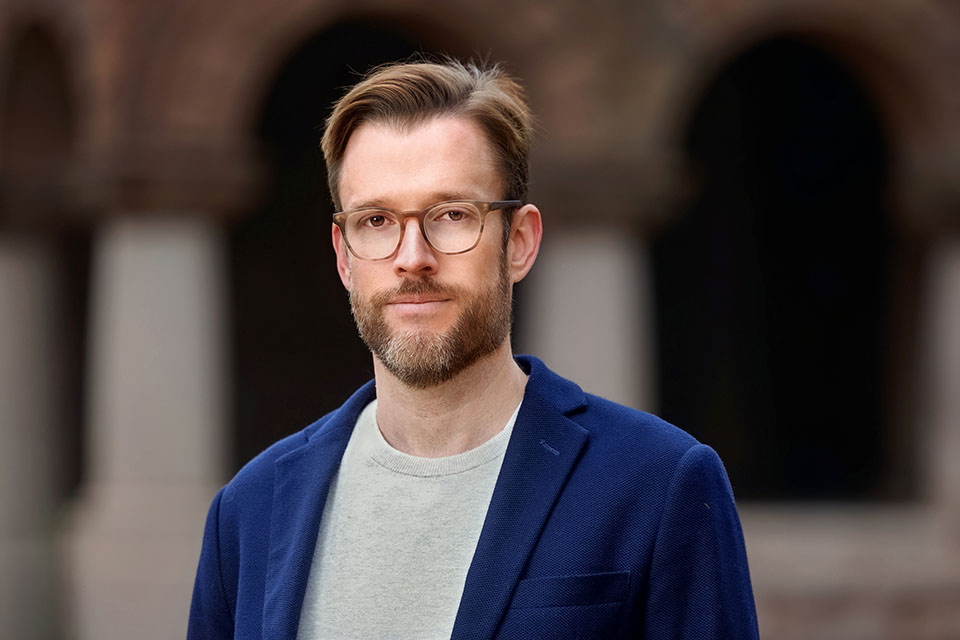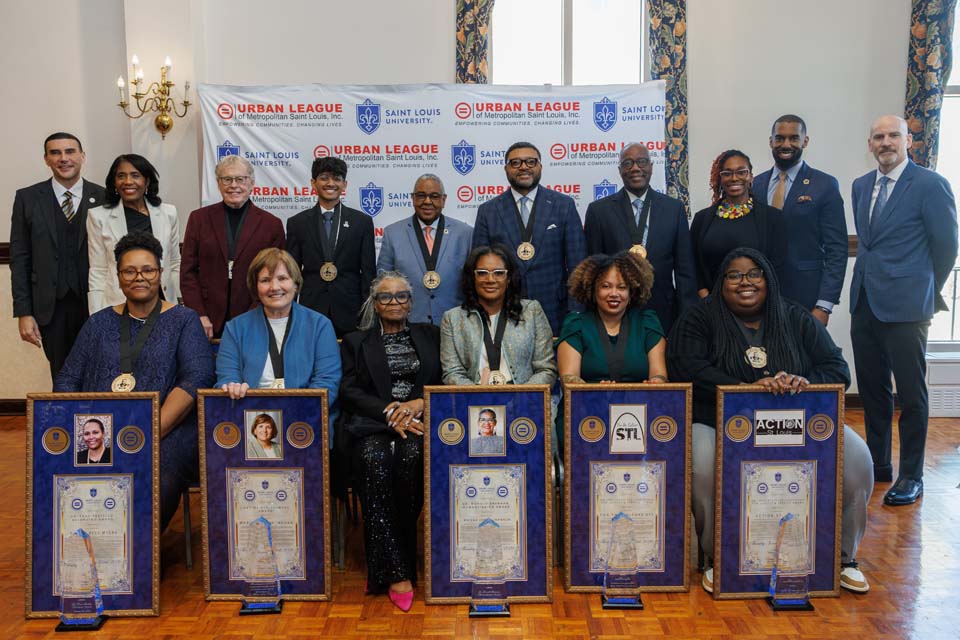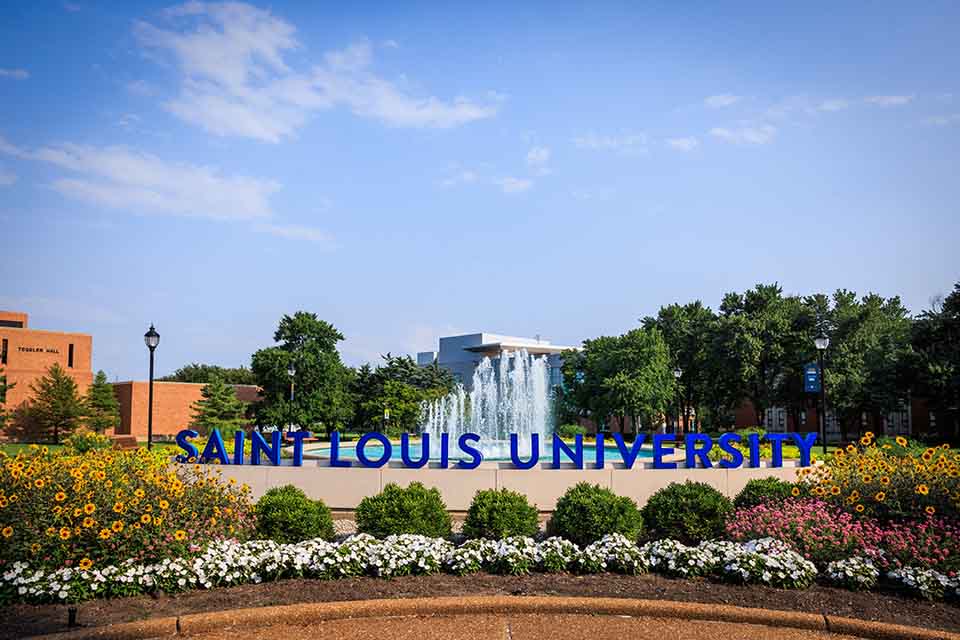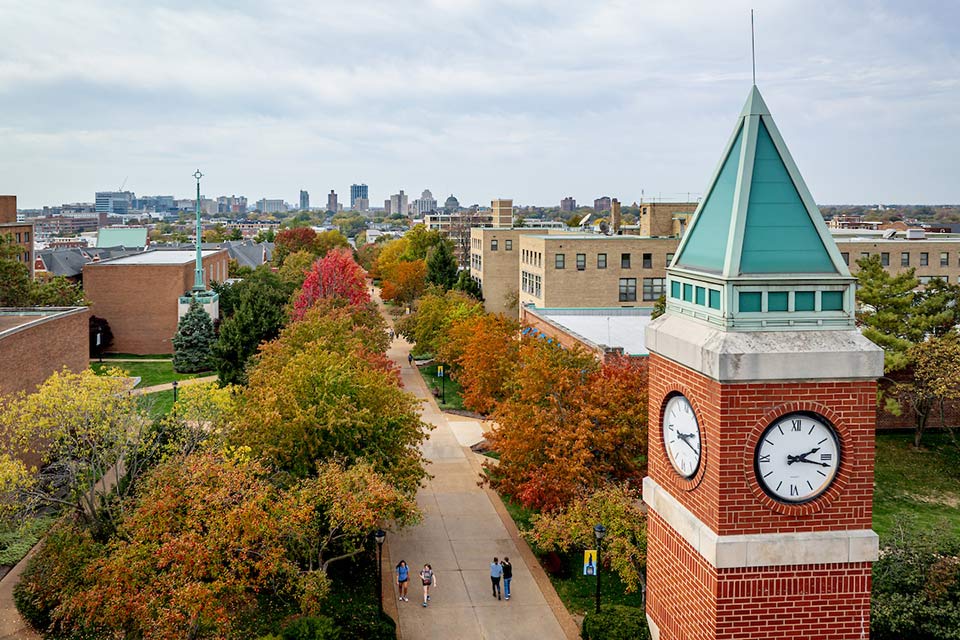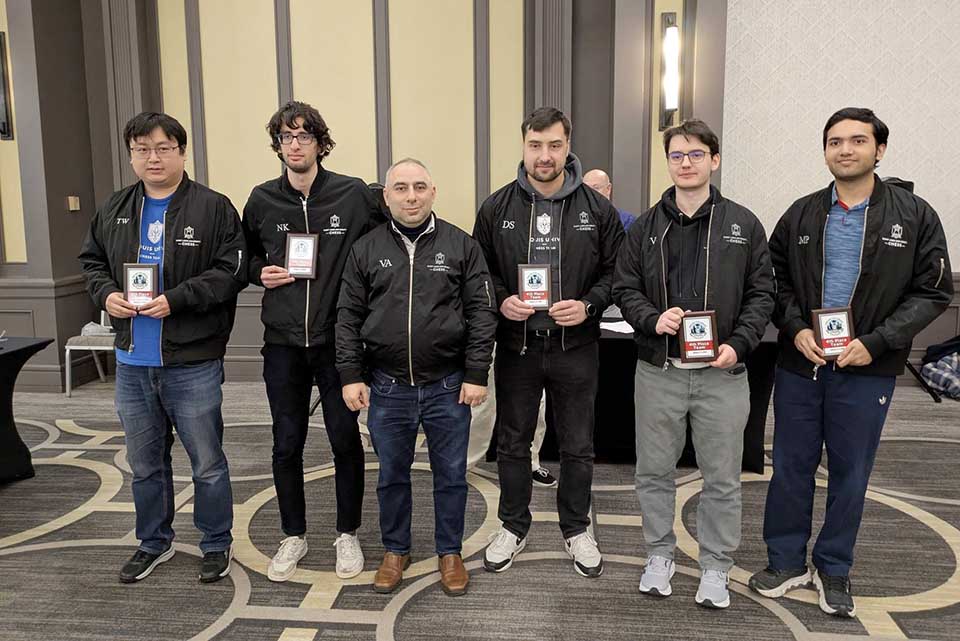SLU Researchers Enroll Participants in 2-in-1 COVID and Flu Vaccine Clinical Trial
ST. LOUIS – Saint Louis University’s Center for Vaccine Development is participating in a clinical study for an investigational vaccine being developed against influenza and COVID developed by Pfizer, which is funding this research.
While there are licensed vaccines and treatments for both influenza and COVID, the current vaccines have been given as separate shots. This study looks at whether both vaccines can be combined into one shot without affecting the antibody response to either vaccine.
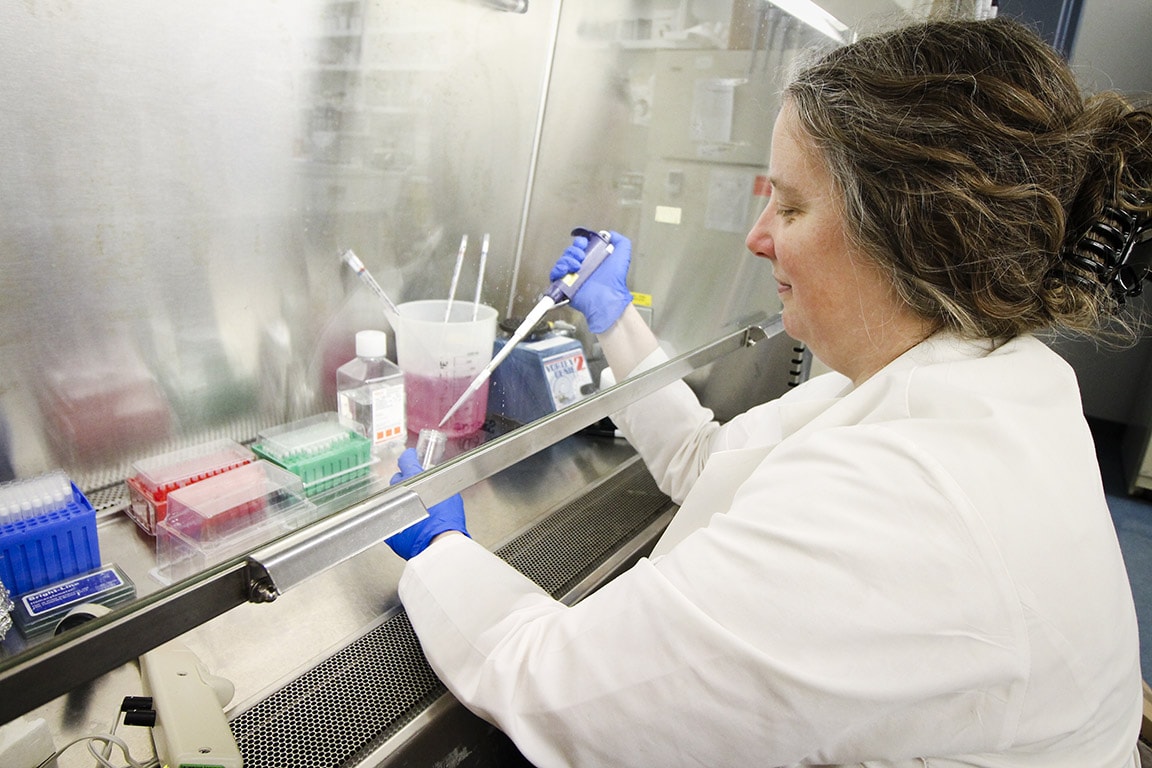
Sarah George, M.D., professor of infectious diseases at SLU School of Medicine and a researcher in SLU’s Vaccine Center. SLU file photo.
Sarah George, M.D., professor of infectious diseases at SLU School of Medicine and a researcher in SLU’s Vaccine Center, will assist in studying whether the combined vaccine induces the body to make antibodies to both influenza and COVID, compared with giving both vaccines separately.
“Since it looks like COVID will be with us for the long haul, just as flu is, it’s important to see if we can combine both vaccines into one shot without compromising immunity of both,” George said. “It’s vital that we continue to work to develop combined vaccines that can protect all of us, especially the vulnerable, from these illnesses.”
The phase 3 clinical trial is being conducted at over 200 sites in the United States, including Saint Louis University. SLU researchers are recruiting around 150 healthy adults 18 through 64 years of age who have not had a flu or COVID vaccine in the past 6 months. Overall, the study will recruit 9,000 volunteers and will last about a year. Each volunteer will have 3 study visits.
To learn more about vaccine research being conducted at Saint Louis University, call 314-977-6333 or email vaccine@slu.edu. For more information on this study, please visit the ClinicalTrials.gov website link here.
Latest Newslink
- SLU Professor's Book On Underground Urbanism Earns Major Anthropology AwardsBruce O'Neill, Ph.D., professor of Sociology and Anthropology, has earned recognition for his book, Underground: Dreams and Degradations in Bucharest. The book won the Anthony Leeds Prize in Urban Anthropology and the William A. Douglas Prize in Europeanist Anthropology.
- SLU Remembers Dr. King at Annual MLK Memorial TributeSaint Louis University and the Urban League of Metropolitan St. Louis once again teamed up to honor the legacy of Rev. Dr. Martin Luther King Jr. The annual memorial tribute took place Thursday, Jan. 22, in the St. Louis Room at Saint Louis University and featured remarks about King's legacy, awards, songs and a panel discussion.
- Tickets to See Jhumpa Lahiri Receive 2026 St. Louis Literary Award Go on Sale January 23Tickets for the St. Louis Literary Award ceremony honoring Pulitzer Prize-winning author Jhumpa Lahiri will go on sale Friday, Jan. 23, at 10 a.m. Lahiri will receive the award on Wednesday, April 8, at the Sheldon Concert Hall.
- Two SLU Faculty Members Receive Emerson's Excellence in Teaching AwardTwo members of Saint Louis University's faculty have been recognized with Emerson's 2025 Excellence in Teaching Award. Sean Goretzke, M.D. (Neurology) and Melissa Ochoa, Ph.D. (Women's and Gender Studies) were both cited for their teaching prowess. The Emerson Excellence in Teaching Awards Program recognizes educators in the St. Louis metropolitan area annually for their leadership in and passion for teaching, their contributions to student learning, and their knowledge and creativity.
- Saint Louis University Launches Tuition Promise Covering Full Undergraduate Tuition for Eligible StudentsStarting in fall 2026, eligible first-time freshmen will be able to attend the University without paying undergraduate tuition through a new initiative aimed at expanding college access and affordability. The SLU Tuition Promise is for students from families with a combined Adjusted Gross Income of $60,000 or less and limited assets.
- SLU Chess Qualifies for Collegiate Chess ChampionshipSaint Louis University chess teams are heading to the Collegiate Chess Championship. The Billikens recently competed in the 2026 Pan-American Intercollegiate Chess Championship in Oak Brook, IL. SLU’s A Team finished fourth and secured a spot Collegiate Chess Championship finals, known as the President's Cup or colloquially as the “Final Four.” Additionally, the SLU B-Team was the top women’s squad at the tournament and will advance to the inaugural Women's President’s Cup.








